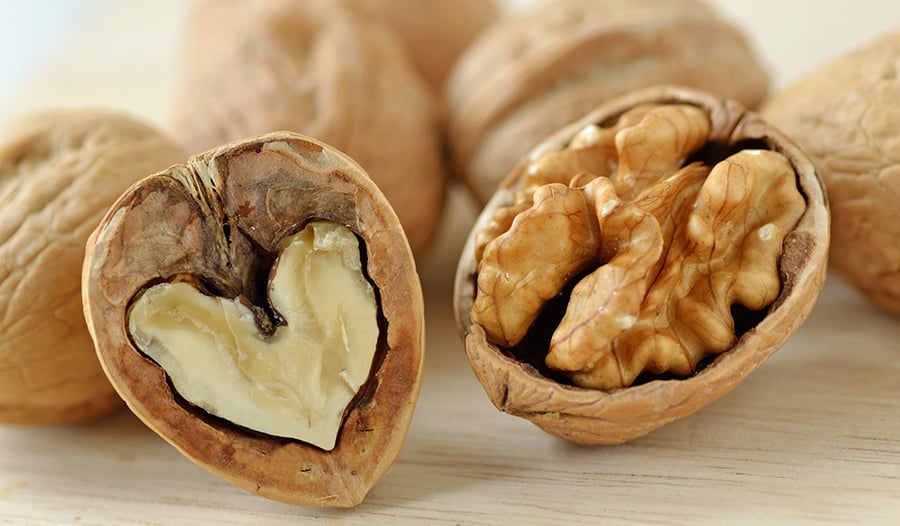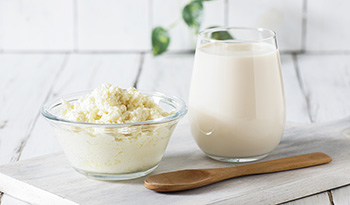7 Brilliant Nutrients That Support Brain Health

Ways to Keep Your Brain Healthy
It’s a no-brainer that maintaining cognitive health and performance is crucial to enjoying a long and healthy life. Fortunately, there are many ways you can keep your noggin sharp—which is particularly important as you age and leave the workforce.
Did you know that retiring early (as fun as that may sound) is actually linked to a dip in mental sharpness? Stave off those age-related lapses by challenging your brain every day—think crossword puzzles or sudoku, reading, music, or any other mentally stimulating pastime.
Beyond that, exercise (both cardio and strength-bearing) helps strengthen your mind as well as those muscles, and sleep and keeping tabs on everyday stress are absolutely essential if you want to avoid that “frazzled” feeling.
Brain Health Supplements
Wondering what else you can do to maintain brain health? Nourishment matters as much as these other brain-friendly behaviors. In addition to eating nutritious, balanced meals, there are also certain nutrients that have long been studied to support cognitive health.
The following seven minerals and compounds are a great way to level up your brain-friendly routine.
1. Magnesium L-Threonate for Memory
Magnesium is called a “mighty mineral” for a reason—it’s responsible for more than 300 biochemical reactions in the body! A special form of magnesium, magnesium L-threonate, supports working memory, aka short-term memory (you know, where you leave your keys, etc.). Magnesium L-threonate also helps promote recall speed and overall cognitive function, so you are less likely to forget why you walked into a room in the first place.
In a randomized placebo-controlled trial, the group receiving a daily dose of magnesium L-threonate showed significantly improved cognitive and executive function in just 12 weeks.1
2. Milk Peptides to “Clear Away the Mental Cobwebs”
Normal aging factors in your brain can affect memory, brain health, and cognitive function. Nutrients like colostrinin, a polypeptide found in milk, can help maintain cognitive wellness as you age. Clinical studies have shown that colostrinin can help enhance and maintain cognition, memory, and mental function.2-4 For best results, pair colostrinin with the mineral lithium, which has exceptional properties for promoting brain health and function.5 (It’s also long been used to benefit mood.)
3. Alpha-GPC: For Overall Cognitive Health
Eggs are considered “brain food” because the yolks contain choline. Alpha-glyceryl phosphorylcholine, or alpha-GPC, is a natural choline compound found in the brain, among other places in the body, that has been studied for its support of healthy cognitive function.6-8 Another compound that works really well in combination with alpha-GPC is phosphatidylserine (PS), which also supports cognitive function, as well as memory.9-11
4. Pregnenolone: For Mind, Mood, Memory & More
Pregnenolone, a hormone produced by your body’s specialized nerve cells, has a tremendous impact on your overall well-being, including your brain health. It also impacts your mood, memory, and sleep. But like many hormones we produce—estrogen, progesterone, even our own body’s stores of the “sleep hormone” melatonin—our levels tend to dip as we get older. Taking pregnenolone is a good way to maintain all of these important functions.
5. A “Sage” Choice for Brain Health
Is your neighbor’s name on the tip of your tongue? Feel like your mind is more of a sieve than a steel trap these days? A “sage” idea is to try taking sage for a little extra cognitive support. We’re not talking about a sage spice that you might rub into a roast, although it does come from the same type of plant; we are speaking of a novel sage extract, Sibelius, that’s been clinically studied to encourage healthy cognitive function. In a randomized, placebo-controlled, double-blinded clinical study, this proprietary sage improved the accuracy of attention, working memory and word recognition and recall.12
6. Ashwagandha to Stay Calm & Energized
Ashwagandha is an adaptogen, which means it helps you stay in balance—physically, emotionally, and mentally. It’s a good choice for people who want to maintain energy while staying calm, which is super important in today’s hectic world.
To amplify ashwagandha’s brain health benefits, try taking it with other brain-supportive nutrients. For example, pair it with sage and PS for a more comprehensive brain support strategy.
7. Think Fast with Nootropics
To sharpen mental focus and attention, look no further than nootropics. These nutrients help you maximize your brain power by encouraging mental stamina and performance. They help augment learning, cognition and mental processes, which in turn can increase productivity and output and may help enhance overall brain chemistry balance that can boost attention.
Technically, caffeine is considered a nootropic, but there are several studied ingredients that promote neural processing speed, fast thinking, memory, and concentration without caffeine. Two of these include standardized gotu kola extract and whole-herb bacopa extract. A two-month study showed significant improvement in reaction time and accuracy of working memory in participants who took gotu kola extract.13 A double-blind, placebo-controlled study of healthy medical students showed that participants taking bacopa had significantly improved attention, concentration, recall, and working memory when compared to placebo.14
Mango leaf and peppermint oil are also considered nootropics—and are caffeine-free as well. When taken together, they work by restoring focus and attention, reducing general mental fatigue and helping to support cognitive performance. How can plants have such significant power? This dynamic duo for concentration helps regulate pathways associated with a healthy inflammatory response to support cognitive health and balanced neurotransmitters—the chemical messengers in the brain.15-17
Takeaway
So whether you’re looking to support your memory, find your focus, think on your toes, or just to stay of sound mind as long as you can, the good news is that you have many nutrients that can help you with your goals. Combine these with a well-balanced diet, regular exercise and sleep, and a mentally stimulating hobby or two, and you’ll be able to conquer the brain game for many years to come.
References:
- J Alzheimers Dis. 2016;49(4):971-90.
- J Alzheimers Dis. 2004;6(1):17-26.
- Med Sci Monit. 2002;8(10):Pi93-6.
- Arch Immunol Ther Exp (Warsz). 1999;47(6):377-85.
- Neuropsychopharmacology. 2018;43(5):1174-1179.
- Ann N Y Acad Sci. 1994;717:253-69.
- Curr Alzheimer Res. 2013;10(10):1070-9.
- Food Chem Toxicol. 2011;49(6):1303-15.
- Annu Rev Biophys. 2010;39:407-27.
- Prog Lipid Res. 2014;56:1-18.
- J Clin Biochem Nutr. 2010;47(3):246-55.
- Psychopharmacology (Berl). 2008;198(1):127-39.
- J Ethnopharmacol. 2008;116(2):325-32.
- Evid Based Complement Alternat Med. 2016;2016:4103423.
- J Ethnopharmacol. 2020;260:112996.
- Cell Mol Neurobiol. 2014;34(5):651-7.
- Nutrients. 2018;10(8)
DISCLAIMER:This Wellness Hub does not intend to provide diagnosis...
















































































 Table of Contents
Table of Contents















